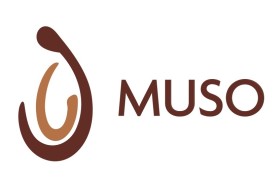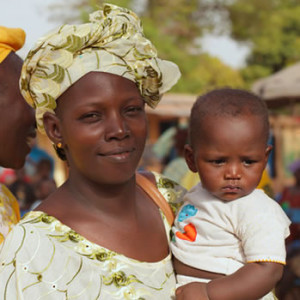2014
MDG Success Stories: Muso’s Door-to-Door Impact in Mali
by David Alport
MDG success is shared success. “MDG Success Stories” shines a light on the inspiring programs that are helping us move towards achievement of MDGs 4, 5 and 6.

Mali has one of the world’s highest rates of child morality and, like other poor counties, a reactive health system: Doctors, nurses, or health workers generally wait for patients to visit and charge fees that many families can’t afford. The Malian Ministry of Health along with two NGOs, Muso and Tostan, have made a huge impact by inverting this model — bringing a stronger health care system to community members, door to door, to keep healthy families healthy, and reaching sick families earlier.
The Problem
Last year 6.6 million children around the world died before they could reach age five. Most of these children were killed by diseases we know how to prevent and cure: pneumonia, diarrheal disease, malaria, and neonatal illnesses. In an effort to end these deaths the global health community has successfully mobilized resources for life saving commodities like vaccinations, bednets, antibiotics and antimalarial medication. But commodities alone are not enough—saving lives depends on getting the tools to those who need them most, rapidly.
For so many illnesses, timing is crucial. But for the world’s poorest communities, various barriers can delay sick children from getting the care they need in time — health centers are too far away; fees for seeing a doctor or the cost of diagnostics and treatment can be too high; and as a result parents often seek treatment when things have gotten truly dire, and frequently, too late.
Mali has one of the world’s highest rates of child morality. And like other poor counties, its health system is reactive: Doctors, nurses, or health workers generally wait for patients to visit and charge fees that many families can’t afford.
A partnership between the Malian Ministry of Health and two NGOs, Muso and Tostan, is inverting this model—bringing a stronger health care system to community members, door to door, to keep healthy families healthy, and reaching sick families earlier.
The Project
To reach children quickly, Muso trained and equipped Community Health Workers to go door-to-door proactively searching for patients, while mobilizing social networks to bring children in for care at the earliest signs of illness. The new health care delivery model worked to reach children quickly through several strategies:
- Doorstep Health Care: Community Health Workers proactively search for pregnant mothers and sick patients through door-to-door home visits.
- Rapid Referral Network: A network for community organizers mobilizes each household to identify vulnerable children and bring them in for care on the first day they become sick.
- Removing Out-of-Pocket Fees: Fees for health services were removed for patients who could not afford to pay.
- Solving Root Causes: Education, community organizing capabilities, management skills, and employment opportunities enable community members to overcome conditions of poverty that cause disease.
The results are more than encouraging. The area of the intervention—Yirimadjo—had a population of 56,000 at the time of the study, and of that approximately 11,000 were children under the age of five. At the start of the project the rate of child mortality was 155/1000. Just three years later, the rate of death for children under age five was 17/1000. A ten-fold difference.
“I’ve never seen this kind of reduction in child deaths in such a short space of time,” said Leith Greenslade, Co-Chair for Child Health at the MDG Health Alliance. “As the child survival community contemplates what kinds of programs will be necessary to accelerate achievement of MDG4 they should be looking closely at models like Muso.”
As a next step, Muso and Tostan plan to replicate the model in rural Mali and conduct further impact research.
What Success Looks Like
“A few months ago, I was pregnant. One night I started bleeding heavily and it wouldn’t stop. It was 11pm. I was weak and couldn’t walk. When someone in our house gets sick, we used to have to choose between not eating, begging for food, or taking the person to the health center. But since Muso started my family has health care for the first time. Our Community Health Worker Jeneba arranged transportation and we went together to the community health center. I needed a blood transfusion because I was anemic and had malaria. Since I was so sick they transferred me to the referral hospital. I was treated at the hospital and within a couple of days I was healthy again. My baby was born early, but thanks to Muso he was born at the health center and he received treatment there until he was strong. Today he is healthy and is no longer small. He is my light. He gives me hope.” — Miriama, Yirimadjo, Mali


